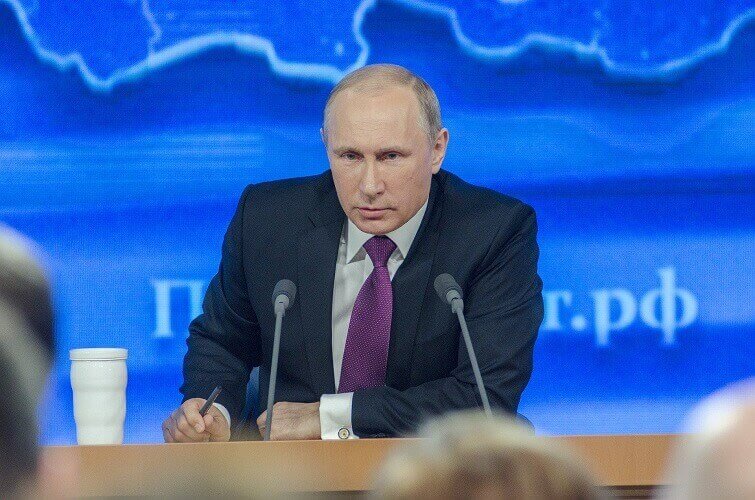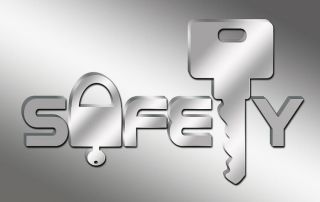Russia now has its own Internet
The internet is free and the knowledge of the world belongs to everyone? This is by no means the case, because not only clear dictatorships like North Korea regulate what information is available to citizens in your country on the Internet. Russia now also has a new law to monitor and control the Internet more closely. The whole thing has been called “Law on the Sovereign Internet” since November 1, 2019
Although the term “sovereign” may not sound as drastic as our NetzDG (Network Enforcement Act), the sovereignty is not only meant to mean independence, but according to the writers of the law also protection against dangerous content. So one may ask how “dangerous content” will be defined in the future, and whether this is not more a question of censorship.
Russia now has its own Internet
The internet is free and the knowledge of the world belongs to everyone? This is by no means the case, because not only clear dictatorships like North Korea regulate what information is available to citizens in your country on the Internet. Russia now also has a new law to monitor and control the Internet more closely. The whole thing has been called “Law on the Sovereign Internet” since November 1, 2019
Although the term “sovereign” may not sound as drastic as our NetzDG (Network Enforcement Act), the sovereignty is not only meant to mean independence, but according to the writers of the law also protection against dangerous content. So one may ask how “dangerous content” will be defined in the future, and whether this is not more a question of censorship.
Internet surveillance begins with the blocking of sites
The freedom that the Russians had to miss in parts in the offline world has now been extended to the online world with the new law. And so all Internet providers will have to use filter technologies in the future to completely block websites, but also to give the state the opportunity to monitor data.
In this way, it is also quite conceivable that specific websites, for example, are locked out before elections in order to make information from abroad no longer accessible to citizens. The past has even shown that this approach is real with the mobile Internet. When thousands of Muscovites took to the streets in July 2019 to protest for free elections, ATMs in the city centers suddenly stopped working and mobile internet was turned off at 3G and LTE frequencies. The providers later justified the functional failure with an overload of the network, but later it turned out that a shutdown actually took place to prevent the exchange of information.
The blocking of websites will probably only be the beginning, which is legitimized by the “Law on the Sovereign Internet”. Because that would mean “only” censorship. Rather, it is possible to completely monitor, manipulate and prevent the Internet and the transmitted information.
This would be a step closer to the surveillance state as it is already a reality in North Korea and China. Currently, a VPN network can still be blocked by simply moving its location virtually to another country and at the same time encrypting the transmitted and received data. However, it should only be a matter of time before all IP addresses used by VPN providers are blocked or their services are no longer allowed to be offered in Russia.
The fact that censorship and information control on the Internet are not new, and even in actually free democracies are common practice should not be a secret. And so in Germany at the latest with the NetzDG (Network Enforcement Act) censorship is already taking place in social networks and on streaming platforms such as YouTube. And it is not uncommon for the algorithm used to shoot past the target and to operate it overblocking.
The Internet is both a curse and a blessing, and in addition to great opportunities and opportunities, there are also many dangers in some areas. Nevertheless, we believe that the knowledge of the world belongs to humanity. This is the only way for peoples to develop and connect freely. However, this will probably remain a dream that will develop in the opposite direction, as the tension in the world tends to worsen rather than relax in many regions. And the easiest way to manipulate people is to let them know what they should know.
We will definitely continue to watch closely, and also report on how the situation is developing.
Internet surveillance begins with the blocking of sites
The freedom that the Russians had to miss in parts in the offline world has now been extended to the online world with the new law. And so all Internet providers will have to use filter technologies in the future to completely block websites, but also to give the state the opportunity to monitor data.
In this way, it is also quite conceivable that specific websites, for example, are locked out before elections in order to make information from abroad no longer accessible to citizens. The past has even shown that this approach is real with the mobile Internet. When thousands of Muscovites took to the streets in July 2019 to protest for free elections, ATMs in the city centers suddenly stopped working and mobile internet was turned off at 3G and LTE frequencies. The providers later justified the functional failure with an overload of the network, but later it turned out that a shutdown actually took place to prevent the exchange of information.
The blocking of websites will probably only be the beginning, which is legitimized by the “Law on the Sovereign Internet”. Because that would mean “only” censorship. Rather, it is possible to completely monitor, manipulate and prevent the Internet and the transmitted information.
This would be a step closer to the surveillance state as it is already a reality in North Korea and China. Currently, a VPN network can still be blocked by simply moving its location virtually to another country and at the same time encrypting the transmitted and received data. However, it should only be a matter of time before all IP addresses used by VPN providers are blocked or their services are no longer allowed to be offered in Russia.
The fact that censorship and information control on the Internet are not new, and even in actually free democracies are common practice should not be a secret. And so in Germany at the latest with the NetzDG (Network Enforcement Act) censorship is already taking place in social networks and on streaming platforms such as YouTube. And it is not uncommon for the algorithm used to shoot past the target and to operate it overblocking.
The Internet is both a curse and a blessing, and in addition to great opportunities and opportunities, there are also many dangers in some areas. Nevertheless, we believe that the knowledge of the world belongs to humanity. This is the only way for peoples to develop and connect freely. However, this will probably remain a dream that will develop in the opposite direction, as the tension in the world tends to worsen rather than relax in many regions. And the easiest way to manipulate people is to let them know what they should know.
We will definitely continue to watch closely, and also report on how the situation is developing.
Popular Posts:
Integrate and use ChatGPT in Excel – is that possible?
ChatGPT is more than just a simple chatbot. Learn how it can revolutionize how you work with Excel by translating formulas, creating VBA macros, and even promising future integration with Office.
Create Out of Office Notice in Outlook
To create an Out of Office message in Microsoft Outlook - Office 365, and start relaxing on vacation
The best backup solutions for your data
Keep your data safe and secure! Discover our best backup solutions for your valuable information now. Because safety is the be-all and end-all - and we have the perfect tips.
Internet Addiction – A serious look at a growing problem
Internet addiction is just as serious an illness as alcohol or drug addiction. Just that this is a mental illness. In this article we want to go into the phenomenon in more detail and provide assistance.
Main keyboard shortcuts in Windows 10/11
Entdecken Sie die wichtigsten Shortcuts in Windows 11, um Ihre Produktivität zu steigern. Von allgemeinen Befehlen bis hin zu spezifischen Fenster-Management- und System-Shortcuts, lernen Sie, wie Sie mit diesen Tastenkombinationen effizienter arbeiten können.
Encrypt USB stick – These options are available
Protecting sensitive data is essential. Encrypting USB sticks provides an extra layer of security. Whether it's built-in software, operating system features, third-party software, or hardware encryption, there are numerous options.
Popular Posts:
Integrate and use ChatGPT in Excel – is that possible?
ChatGPT is more than just a simple chatbot. Learn how it can revolutionize how you work with Excel by translating formulas, creating VBA macros, and even promising future integration with Office.
Create Out of Office Notice in Outlook
To create an Out of Office message in Microsoft Outlook - Office 365, and start relaxing on vacation
The best backup solutions for your data
Keep your data safe and secure! Discover our best backup solutions for your valuable information now. Because safety is the be-all and end-all - and we have the perfect tips.
Internet Addiction – A serious look at a growing problem
Internet addiction is just as serious an illness as alcohol or drug addiction. Just that this is a mental illness. In this article we want to go into the phenomenon in more detail and provide assistance.
Main keyboard shortcuts in Windows 10/11
Entdecken Sie die wichtigsten Shortcuts in Windows 11, um Ihre Produktivität zu steigern. Von allgemeinen Befehlen bis hin zu spezifischen Fenster-Management- und System-Shortcuts, lernen Sie, wie Sie mit diesen Tastenkombinationen effizienter arbeiten können.
Encrypt USB stick – These options are available
Protecting sensitive data is essential. Encrypting USB sticks provides an extra layer of security. Whether it's built-in software, operating system features, third-party software, or hardware encryption, there are numerous options.













































